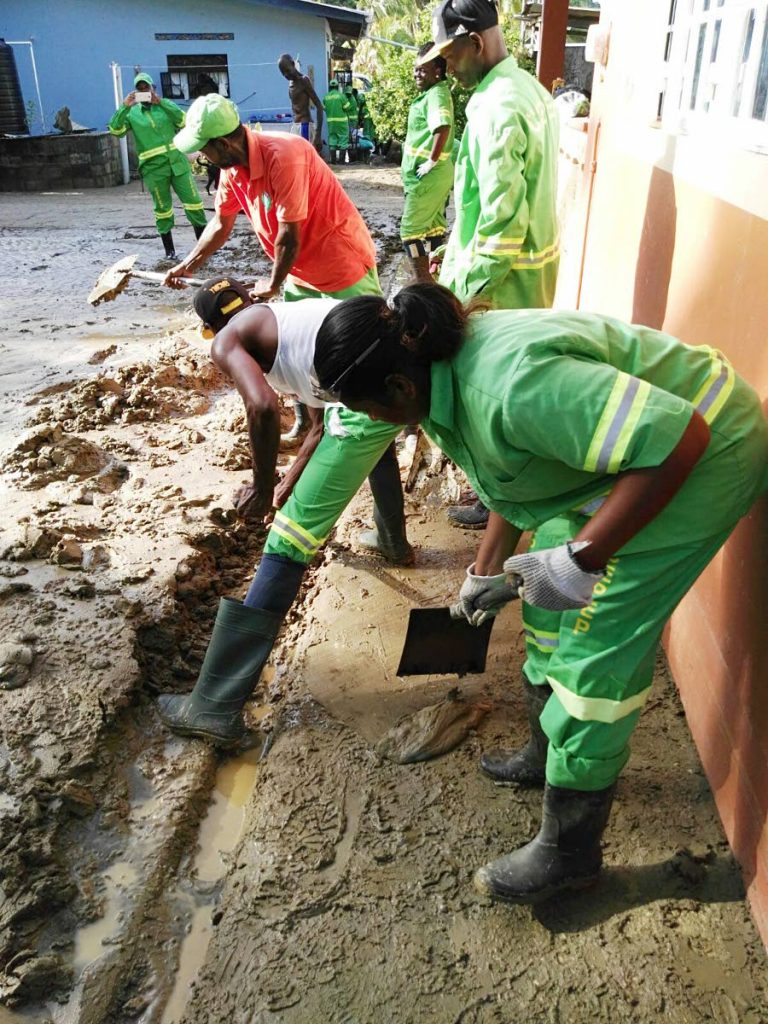New, better Cepep

Expect a new and improved Community-Based Environmental Protection and Enhancement Programme (CEPEP).
That’s the word from Margaret Sampson-Browne, the programme’s corporate communications manager.
She said while the CEPEP, which was conceptualised in 2002, may have strayed from its fundamental mandate over the years, moves are afoot to restore the programme to its original moorings.
“The origins of CEPEP was really to employ single parents, mothers with children whose fathers were imprisoned, so that they would be able to work in their communities and look after their children. But there are times when it went a little awry,” she said, alluding to allegations of corruption which has plagued the programme over the years.
According to Sampson-Browne, who was appointed CEPEP’s communications manager in July 2016, the company’s new management team is intent on promoting an environment in which its staff can feel a greater sense of belonging.
“Not because they belong to a contractor but we want to do social programmes to encourage our members to make them feel empowered so that they could have a greater sense of self. I feel I am there to drive that.”
Saying the CEPEP held a Christmas party for workers and their children in December in an attempt to create a sense of inclusion, Sampson-Browne said the organisation also was preparing for an upcoming event which it calls Oh Happy Day.
“This involves going out to businesses asking for anything from clothes to furniture. We want to transform the CEPEP into a shopping area where families from the immediate environment can come and shop. CEPEP is not about giving people a bag of clothes.”
She said plans also are on stream to form the workers into co-operatives to bolster their entrepreneurial spirit.
“Right now, I want my house cleaned,” Sampson-Browne said with a laugh.
“Won’t it be nice if CEPEP workers could form themselves into a group and clean people’s homes and paint for the Christmas? We are looking at all of that - empowering them.”
Sampson-Browne said the CEPEP also intends to enhance its existing range of services.
Singling out the organisation’s Dead Animal Removal Team, she said: “We want to be able to provide that professional service where, for example, we will come and collect your dead animals and dispose of them, at a fee of course. We want to give the best service to our clients.”
Sampson-Browne spoke to Sunday Newsday about the new thrust of the CEPEP at a workshop hosted by the Victim and Witness Support Unit (VWSU) of the TT Police Service, on October 27, at the National Racquet Centre, Tacarigua.
The workshop, Confronting Fear: Managing Life After A Violent Crime, sought to devise strategies to enable victims of violent crimes to rebuild their lives.
Sampson-Browne, the VWSU’s former manager, addressed the forum on the topic, Community Safety-Vengeance, Fear and Paralysis. Her speech sought to encourage citizens to be proactive in reclaiming their communities after a violent crime.
“A community is not about an individual. It is about civil society, the next door neighbour who living in the same house for 20 years and still can’t see (perpetrators of crime). All they hearing is gunshots. They hear a loud sound and then they see a body,” she told Sunday Newsday before her presentation.
“We have to stop being silent bystanders because in a community, if that fear, paralysis and vengeance and non-safety exists, then we don’t have a community. We just have a place where people living. They must feel safe again because the next door neighbour looking our for you.”
The retired assistant commissioner, who also served for five years as head of the VWSU, told Sunday Newsday there is a link between the unit and CEPEP.
“Those 12,000 people who work with the contractors, they come from communities that are disabled, communities that are dysfunctional. They would have come to the police officers and the VWSU.”
She said during her years as a police officer and as VWSU manager, she met a variety of people “from all levels and different catchments.”
“But the CEPEP catchment is actually the beginning of the end that reached to me at the victim and witness support unit.”
However, she said the workers employed in the CEPEP must take some responsibility in reversing the negativity that has plagued the programme.
“The change has to come from the workers themselves.”


Comments
"New, better Cepep"